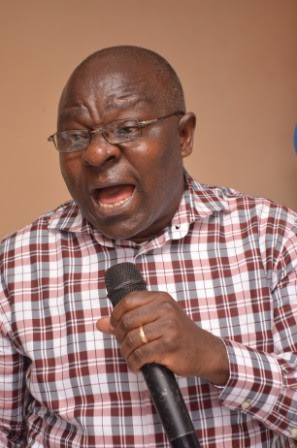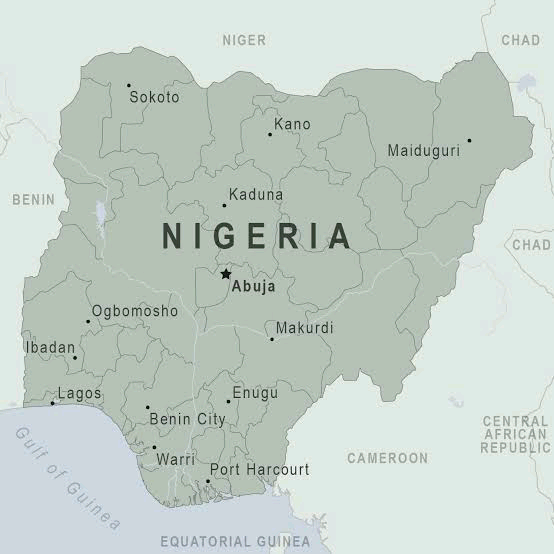Opinion
ON THE PLANNED MERGER OF MDAS, EFCC, ICPC, OTHERS AND MATTERS ARISING
By Zik Gbemre
Doubtless, if it were possible for us a people and a nation to sit downand calculate every naira and kobo that have been ‘recklessly’ spent bypast Nigerian governments at the various levels in their governanceactivities and supposed “Recurrent Expenditure” from 1960 to date, theresults that will be revealed will not only be shocking, but it will alsonot commensurate with the deplorable status of the country which they areexpected to effectively govern in the first place. It is generally knownthat the Nigerian democratic system is perhaps one of the most expensivedemocracy in the world. Beside the perennial systemic corruption, there is“duplication of supposed statutory functions” across several GovernmentMinistries, Departments and Agencies (MDAs), this actually is one of thereasons why the Recurrent Expenditures of yearly budget dwarfs CapitalExpenditures.

Perhaps, it was against this prevailing ‘unhealthy’ circumstance that in2012, former President Goodluck Jonathan inaugurated the Steve OronsanyeCommittee with the aim of “Restructuring and Rationalization of theFederal Government Agencies, Parastatals and Commissions”. Some of itsrecommendations are: the scrapping of 102 Federal Government StatutoryAgencies from the present 263; the abolition of 38 Agencies; the merger of52 and reversion of 14 to mere Departments in some Ministries; thediscontinuation of government funding of professional bodies and councils,etc. The said Committee also recommended the scrapping of the Federal RoadSafety Commission (FRSC), Economic and Financial Crimes Commission (EFCC),the Independent Corrupt Practices and Other Related Offences Commission(ICPC) and 35 other agencies. While some recommendations were approved andothers rejected, in May 2014 the then Government went further toinaugurate an implementation Committee on the White Paper of the reportwith a task to urgently wind up and harmonize agencies as approved bygovernment. But after several months, none of the approvedrecommendations were implemented, and business continued as usual.
When the President Muhammadu Buhari government came on board, manystakeholders advised the government to revisit the Steve Oronsaye reporton the public service so as to curb wastage. On a closer review of some ofthe Agencies, particularly the Ministry of Education which has the WestAfrican Examination Council (WAEC) and the National Examination Council(NECO) conducting basically the same sets of examination; there is noreason why this two should not be merged to reduce government spending. Inaddition, the Universities, the Polytechnics/Monotechnics, and theColleges of Education are each regulated by the National UniversitiesCommission (NUC), the National Board for Technical Education (NBTE), andthe National Commission for College of Education (NCCE). The OronsayeCommittee had recommended that NBTE should be subsumed along with the NCCEunder the NUC to form the proposed tertiary education regulatory bodyknown as Tertiary Education Commission (TEC) – this recommendation washowever rejected. Several agencies exist in different Ministries thatshould actually get the attention of government for proper pruning andeffective service delivery.
As President Buhari settled in, it became obvious that he already hadplans to effect major changes in the administration of the country in abid to translate the ‘change’ mantra of his party into reality. To startwith, the President was said to have accepted the recommendation of theTransition Committee he raised to slash the number of Ministries from thepresent 42 to 19 with a view to saving cost and making them more effectiveand responsive to the needs of Nigerians. In the same vein, many of theMinistries have been merged to ensure proper coordination of duties andensure greater efficiency and service delivery. A source close to thePresidency noted in reports that the number of Federal GovernmentDepartments and Agencies had also been trimmed in line with the policy ofthe administration. Effectively, it means that no fewer than 50 of theMDAs that were not backed by relevant laws might be scrapped and theirstaff moved into relevant departments to save cost. While it still remainsunclear, as at the time of writing this piece, as to what exactly wasdone by the current administration in this regard, it is however indeed awelcome development. But if the Buhari administration will consider orhave considered some of the recommendations made by the OrosanyeCommittee, we believe there are indeed few of the recommendation thatshould be critically looked into for the right changes to be made.
For instance, one of the highlighted recommendation of the scrapping ofthe Economic and Financial Crimes Commission (EFCC), the IndependentCorrupt Practices and Other Related Offences Commission (ICPC) and 35other agencies. We are strongly of the opinion that the two anti-graftagencies should be left the way they are, but however strengthened in theareas of their independence from government influence and alsostrengthening of the existing frameworks for the adequate prosecution ofcriminals with the full weight of the law. Though, a recent poll resultfrom a partnership between NOI Polls Limited and a media organization hasrevealed that most Nigerians have endorsed President Muhammadu Buhari’sproposal to merge some ministries and parastatals, with majority ofNigerians (72 per cent) in support of the proposed merger of Ministries,Departments and Agencies (MDAs) of the Federal Government, and the fusionof the EFCC ICPC, we still insist that the EFCC and the ICPC can functionseparately and more efficiently if given the needed support andstrengthening by the government.
We are however in support of the complete merger of the Federal RoadSafety Commission (FRSC) back into the Nigerian Police from where it cameforth in the first place. The FRSC should be made a Department in theNigerian Police Force (NPF). This is hinged on the fact that the FRSCpractically constitutes more of a nuisance on Nigerian roads with theirfrequent harassments, extortions and abuse of power against motorists onNigerian Roads. But more importantly, the Nigerian Police and the VehicleInspection Officers (VIOs) are there to address whatever it is the FRSCare supposedly addressing on Nigerian Roads. As also noted by the Oronsayecommittee, out of the Nigeria Police Force (NPF) alone, four agencies, theFRSC, EFCC, ICPC, the Nigeria Security and Civil Defence Corps, have beencreated, thereby duplicating functions. But because of the seriously andwidely spread corruption in the Nigerian polity, we strongly believe theEFCC and the ICPC are still very much relevant and needed to sanitize thecountry. Addressing the issue of corruption and other related offenceswill be too much of a tack for the Nigerian Police Force to handle withits hands already full with all manners of crime. But that of the FRSC andtheir functions should be fussed back into the NPF as a Department.
The Oronsaye committee had noted then that if the committee’s report wasadopted and agencies reduced in accordance with the recommendation,government would save over N862 billion between this year and 2015. Thebreakdown showed that about N124.8 billion would be reduced from agenciesproposed for abolition; about N100.6 billion from agencies proposed formergers; about N6.6 billion from professional bodies; N489.9 billion fromuniversities; N50.9 billion from polytechnics; N32.3 billion from collegesof education and N616 million from boards of Federal Medical Centres. Thecommittee described as “a fundamental breach of acceptable practice ofgood public sector governance to create a new agency or institution as aresponse to the seeming failure or poor performance of an existing agencyin order to suit political or individual interests”, as well as“misadventure in the public sector at a great cost to government”, thesetting up of FRSC to take over partially the functions alreadyapportioned by law to the Federal Ministry of Works and the NPF as aresult of seeming poor performance and/or to satisfy political andindividual interests.
The said committee also observed that the National Oil Spill Detection andResponse Agency (NOSDRA) is duplicating the function already assigned bylaw to the Department of Petroleum Resources (DPR), noting that “besidesbeing a clear case of latter-day overlapping functions of agencies, thecontinued existence of NOSDRA is tantamount to paying huge salaries topersons who do nothing, but wait for spills to occur. This is despite thefact that there is a standard operating procedure for oil companies inNigeria to clean up oil spill whenever it occurs”. The committee alsonoted that three agencies: the Universal Basic Education Commission(UBEC), the Nomadic Education Commission (NEC), and the NationalCommission for Mass Literacy, Adult and Non-Formal Education (NCMLA) allperform functions related to the provision of basic education.
“The question then arises as to why they continue to function as separatebodies. Our committee is of the view that the functions of all the otheragencies should be taken over by UBEC as there is no economic gain inhaving the three bodies as separate entities”.The panel noted that sadly, 12 years after the White Paper on the AhmedJoda Panel Report on the Review, Harmonization and Rationalization ofFederal Government parastatals, institutions and agencies (2000), someparastatals and agencies, which government had decided should either bescrapped, commercialized, privatized or self-funding, were still receivingfull government funding, which runs into billions of Naira.
Oronsaye, while submitting the report back then, regretted that “thelong-standing challenges that beset the Nigerian public sector, includingthe parastatals, have created a “single story” of inefficiency,corruption, poor work environment, low morale, ineffectiveness, deceit andlow productivity, thereby establishing a perception of a dysfunctional andunproductive public sector. The weaknesses in the “single story” havesometimes placed the Sector in a situation where it is unable to performits legitimate functions creditably. The committee also highlighted thecase of the Nigerian broadcasting agencies (the Nigerian TelevisionAuthority (NTA), the Federal Radio Corporation of Nigeria (FRCN) and theVoice of Nigeria (VON) which he said the committee believed focus more onstructures rather than acquisition of broadcasting software.
If we are to look at the above issue objectively, we would realize thateven the Executive Government, both at the Presidency and at the StateGovernments, seriously needs to address the duplication of some of itsportfolios and their functions/duties. It is sad to see the ExecutiveGovernment make some needless appointments of officials around theiroffices that are pure duplication of functions or out rightly unnecessary.For instance, how can Executive Government have a Special Adviser onthing, and another Senior Special Adviser on the same thing? We also haveSpecial Assistants and Senior Special Assistants of one thing or theother; all practically doing the same thing or just there to pleasepersonal interests. Some call it “jobs for the boys”, that is, those whohave placed the Executive Government concerned deserve to have theirinterests present in the administration they helped to create. But this isoften done to the detriment of the overall good of the nation. The truthis that if the Government must address this issue of ‘duplication offunction’ in its circles, then it must start at its door step.
Aside the obvious Executive and legislative functionaries, the MDAs arebasically where the loopholes regarding government expenditures areevident. In the past, most of the Ministries that today exist on their ownwere statutorily taken care of by one or two Ministries. But over theyears, these Ministries that sprang up have become avenues through whichpublic funds are wasted. The truth is that, a lot of these Ministries inthe country today are functioning on the platform of ‘duplication offunctions/duties.’ Some of the MDAs are nothing but unnecessary sproutsthat should be uprooted or merged to function under one or two Ministries.Perhaps, it is expedient for us as a nation to take a critical look atdeveloped societies and see how they operate, and possibly emulate thelaudable practices that would suit our kind of democracy. The size of theNigerian government at all levels drastically needs to be reduced if weare serious in tackling the challenges that are adversely impacting theeconomy. We cannot develop as a nation with the way we are going. Nocountry has achieved considerable development when such ‘public fundswastage’ is encouraged.
Amid the huge budgets yearly set aside to address recurrent expenditure,what the average citizen sees is only the worsening of his environment,the continuing decay of existing structures, and his rising poverty level.The bottom line is that Nigeria’s public expenditure, vis-a-vis thecountry’s state of underdevelopment is neither justifiable, nor favourablycomparable to similar expenditure in other countries. The above analysisexplains why every dick and harry are clamoring to do whatever that isnecessary to find their way into the circles of government – where one’seconomic status can change over night by doing practically little ornothing in the name of government work. This has to stop!
Zik Gbemre,JP.
National Coordinator
Niger Delta Peace Coalition (NDPC)

